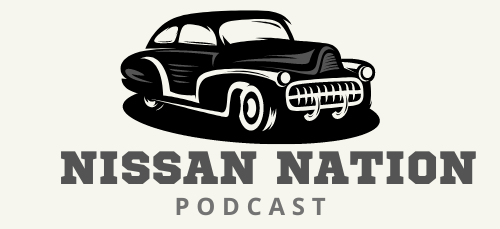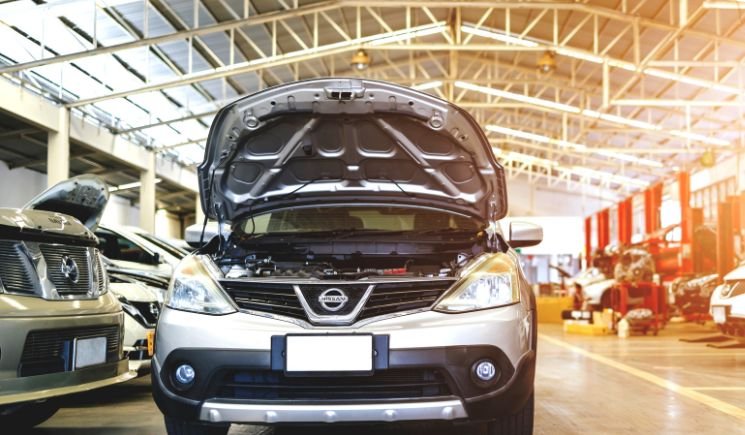Hearing sudden loud noises from your Nissan Altima’s engine bay can be problematic and annoying. Determining the primary cause of the issue is crucial in restoring regular, quiet operation or making needed repairs.
This article will explore common sources of noisy engine issues ranging from low oil and loose components to damaged bearings and piston slaps. Identifying the type of loud engine noise based on sound clues and correlating it with operating conditions points toward diagnosis.
My friendly advice is to not to tolerate unsettling engine sounds – leverage our troubleshooting tips to zero in on the precise fix for that annoying noise coming from your Altima’s engine.
Potential Causes Of Loud Engine Noise In A Nissan Altima
Low engine oil level
- A low oil level can generate increased valvetrain noise from improper lubrication.
Exhaust leak
- A minor breach in the exhaust manifold gasket, flange, or header joints allows hot exhaust gases to escape loudly.
Damaged motor/engine mounts
- Worn mounts cannot dampen engine vibrations and movements.
- As a result, it will allow loud rocking noises and knocking sounds from engine movement to continue the process.
Noisy accessory belt/pulleys
- Fraying serpentine belts or pulleys with bad bearings can create loud squealing sounds that increase with engine speed as the accessories are in working mode.
Failing timing chain/tensioners
- If the timing chains are over the manufactural size or tensioners are damaged, it will create a louder rattling noise from the front of the engine.
Piston slap on cold start
- A light knocking sound on initial cold startup that fades as the engine warms up points to a mild piston slap within acceptable tolerances.
- This is not something that you have to worry about because it is harmless in most cases.
Connecting rod bearing failure
- Worn connecting rod bearings with excessive play can create a prominent knock while accelerating.
Solutions For Loud Engine Noise Issues In A Nissan Altima
- Ensure the oil is full to the proper level on the engine dipstick. If not, make sure that you fill the right amount.
- Remove and replace any deteriorated or blown exhaust manifold, header, or flex joint gaskets that allows loud exhaust escapes.
- Use a pry bar to check for cracked, sagging, or collapsed engine mounts that require replacements to prevent knocking noises.
- Isolate noisy belts or accessory bearings and replace the worn or defective pulleys with new OEM parts to stop loud squealing.
- Remove the timing cover to inspect the timing chain and tensioners. Replace the timing set if loose or damaged components are on sight.
- Excessive valve lash out of spec can sometimes increase lifter clatter. To overcome this issue, adjust the valves per factory specifications to quiet the noise.
- For major internal issues like rod bearing failures or excessive piston slaps. A complete engine teardown, inspection, and rebuilding may be necessary to cure loud knocking noises.
Frequently Asked Questions About Nissan Altima Loud Engine Noise
Q: Are any loud engine noises considered normal and not as an immediate issue?
A: Some engine sounds like brief startup piston slaps, injector ticking, and minor belt squeaks can be considered harmless mechanical noises. Other than that, it is something you have to look out for.
Q: How can I narrow down where exactly the loud engine noise is coming from?
A: Carefully listen for the noise locations – front, rear, top, or bottom of the engine. Also, note if the noise changes with engine speed or temperature. Because this helps to isolate the correct component.
Q: Can I continue driving my Altima if there is a new concerning engine noise?
A: It is not a suitable action to take when you are in a situation like this. New loud noises often signify underlying damage or wear that will increase if driving continues. Diagnosis should begin immediately to minimize the issue.
Q: How serious are rod-bearing knocks or piston slap noises?
A: These noises point to internal component failures and excessive clearances. If severe, they require teardown and engine rebuilding or replacements to prevent seizing.
Q: Can adding thicker oil quiet lifter ticking or rod knocking sounds?
A: No, thicker oil only masks underlying mechanical issues temporarily. Proper repairs specific to damaged components are the only accurate fix for loud engine noises.
Q: My Altima’s engine gets loud when accelerating hard. Is this normal?
A: Increased volume during heavy acceleration is standard and generally not a concern.

